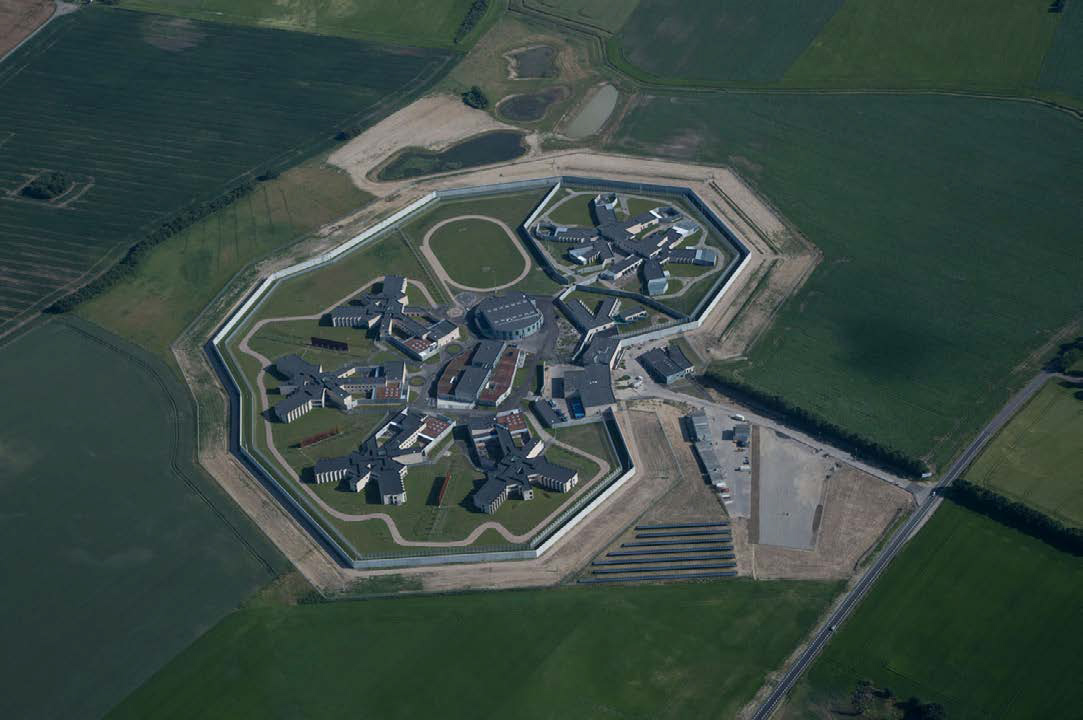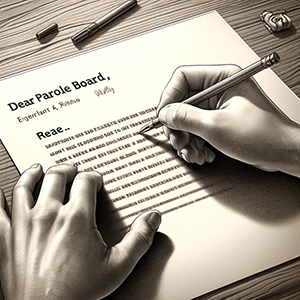A quick overview
The Scandinavian Normality Principle is a guiding principle in Scandinavian prison systems that aims to create a prison environment that resembles normal life as much as possible. While it may be challenging to implement this principle fully in a foreign prison, you can consider incorporating some aspects of it to promote a more humane and rehabilitative approach. Here are some suggestions:
- Individualized Treatment: Focus on individualized treatment plans for each incarcerated individual based on their specific needs, risks, and potential for rehabilitation. This can involve assessments, counseling, education, vocational training, and other programs aimed at addressing their personal circumstances.
- Respect and Dignity: Promote a culture of respect and dignity towards incarcerated individuals. Treat them as individuals deserving of basic human rights, and ensure that staff members and guards adhere to professional and ethical standards in their interactions.
- Normal Living Conditions: Strive to create living conditions that resemble those found outside of prison. This can include providing clean and comfortable cells or dormitories, access to natural light, personal belongings, and opportunities for recreation and exercise.
- Autonomy and Responsibility: Encourage incarcerated individuals to take responsibility for their actions and promote a sense of autonomy. Provide opportunities for incarcerated individuals to participate in decision-making processes that affect their daily lives within the prison, such as determining schedules or participating in rehabilitative programs.
- Rehabilitation Programs: Offer a range of educational, vocational, and therapeutic programs designed to promote rehabilitation and reduce recidivism. This can include educational courses, vocational training, substance abuse treatment, mental health support, and programs that address anger management or violence prevention.
- Focus on Reintegration: Prepare incarcerated individuals for successful reintegration into society upon release. Offer pre-release programs that assist with job placement, housing, and social support networks to help individuals transition back into their communities.
- Staff Training and Development: Ensure that prison staff receive proper training on the principles and practices of the Scandinavian Normality Principle. This can help cultivate a culture of respect, empathy, and professionalism within the prison environment.
- Community Engagement: Foster partnerships with local communities and organizations to provide incarcerated individuals with opportunities for meaningful engagement, such as work-release programs or community service projects. This can help bridge the gap between the prison environment and the outside world.
It’s important to note that implementing the Scandinavian Normality Principle may face cultural, legal, and resource-related challenges in a foreign prison system. Understanding and adapting to the local context, laws, and regulations is crucial. Collaborating with experts in the field of criminal justice, prison reform, or rehabilitation can also provide valuable guidance and insights.
Conduct thorough research: Before implementing any program, it is important to conduct extensive research to understand the strengths, weaknesses, and challenges of the Scandinavian prison system. You can also look for relevant case studies or other examples of successful prison systems in other countries.
Identify key components of the Scandinavian prison system: The Scandinavian prison system is known for its focus on rehabilitation and reintegration. It is based on the principle of normality, where incarcerated individuals are treated as normal citizens and are provided with opportunities to develop skills, education, and job training. Identify the key components of the Scandinavian prison system that you would like to implement in a foreign country.
Conduct a needs assessment: Before implementing any program, it is important to conduct a needs assessment to understand the current state of the correctional facility and the needs of the incarcerated individuals. Conduct interviews with staff and incarcerated individuals to identify areas of improvement.
Develop a comprehensive plan: Based on your research, the needs assessment and identified key components, develop a comprehensive plan outlining the steps you will take to implement the Scandinavian prison system in your country. This plan should include steps for changing laws and regulations, developing new institutions or facilities, and training staff.
Get support from key stakeholders: Implementing a new prison system requires the support of key stakeholders, including government officials, law enforcement agencies, and community leaders. Reach out to these groups to build support for your plan.
Train staff: The Scandinavian prison system is based on the principle of normality, where incarcerated individuals are treated as normal citizens and are provided with opportunities to develop skills, education, and job training. This approach requires a shift in mindset among staff. Provide staff with training on the principles of the Scandinavian prison system and how to implement them effectively.
Develop new programs and services: The Scandinavian prison system focuses on rehabilitation and reintegration. Develop new programs and services that align with the principles of the Scandinavian prison system, such as education and job training programs.
Pilot the program: Before implementing the Scandinavian prison system across the entire country, consider piloting the program in a few institutions or facilities to test its effectiveness and identify any challenges.
Monitor and evaluate the program: It is important to monitor and evaluate the program regularly to ensure its effectiveness and make any necessary adjustments. This will require ongoing data collection, analysis, and reporting.
A Danish Approach – Storstrøm Prison
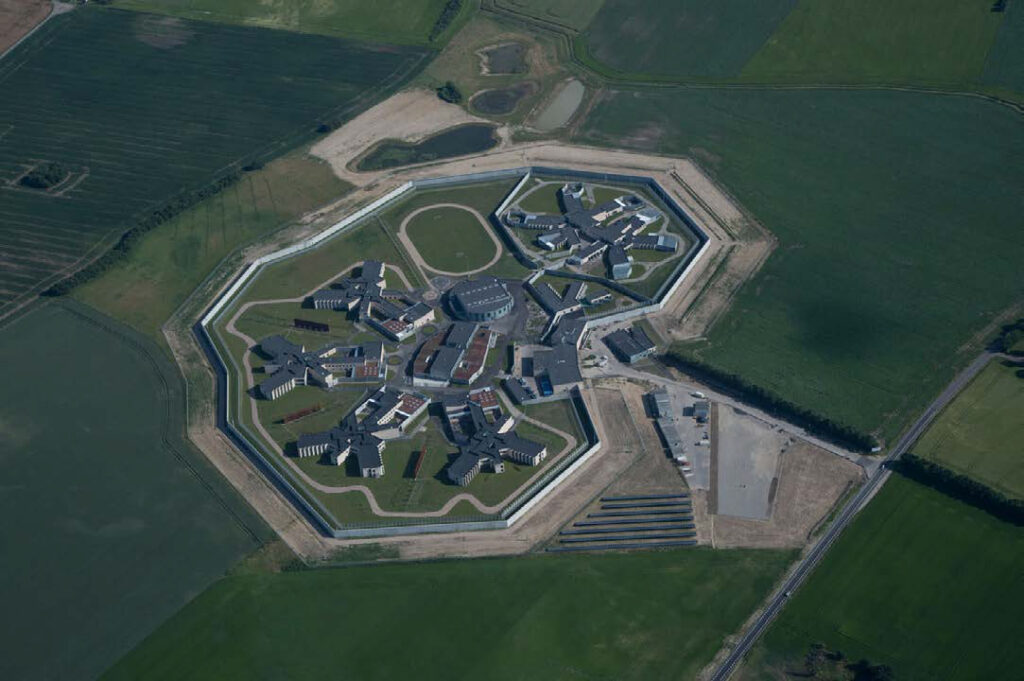
Storstrøm Prison is a closed prison with a total of 252 places. The prison has a very high degree of security and includes a specially secured department.
The prison opened in 2017 as part of the renewal of the Danish Prison and Probation Service’s building portfolio. It is located on a 29-hectare site in Nordfalster near Nørre Alslev.
The prison covers nearly 35,000 m2 and is divided into four independent and detached departments as well as a specially secured department. Each normal department has 54 places divided into 8 departments. The prison’s construction allows for effective sectioning so that different groups of incarcerated individuals can be kept separate. There are good opportunities for activation, education, and treatment of the incarcerated individuals as well as a good working environment for the staff.
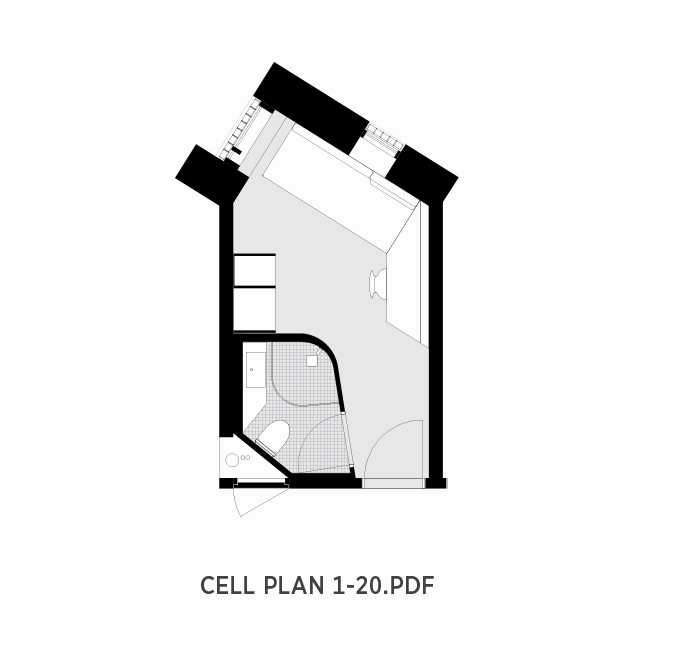
The incarcerated individuals can work in work areas such as surface painting, woodworking, assembly tasks, and metalwork. In addition, the incarcerated individuals can be employed in the kitchen as well as in the maintenance of green areas.
The prison has a treatment department for abuse and addiction. It is operated by the self-governing institution Kongens Ø in collaboration with the Danish Prison and Probation Service.
Before you can book a visit, you must apply for a visitation permit. The incarcerated individual can send the application form to you. (The form cannot be downloaded from the website). The application form must be sent to the prison in PDF format.
It is very important that you bring a physical photo ID in the form of a passport, driver’s license, or citizen card for the visit. Children and young people under 15 years of age can enter with their national health insurance card.
You will be denied entry for the visit if photo ID is not provided.
Please note that from January 10, 2023, it will no longer be possible to bring small change for the purchase of sodas, etc. in the vending machine in the visitation area (however, it is still possible for visits to Building E).
Booking:
Tel. +45 7255 2880
Booking times:
Tuesday: 17.30 – 18.30
Wednesday: 8.00 – 8.45
Saturday and Sunday: 9.00 – 9.30 and 15.30 – 16.00
Visiting hours:
Tuesday: 14.30 – 16.15 and 17.15 – 19.00
Saturday: 8.30 – 10.00, 10.45 – 12.15, 13.00 – 14.30, 15.15 – 16.45, and 17.30 – 19.00
Sunday: 8.30 – 10.00, 10.45 – 12.15, 13.00 – 14.30, 15.15 – 16.45, and 17.30 – 19.00
Police supervised visits (you must be approved by both the police and the prison):
Wednesday: 9.00 – 10.00, 10.30 – 11.30, and 12.00 – 13.00
Please note that the police determine whether the visit lasts ½ or 1 hour.
Phone for cancellation: +45 7255 1700
Visiting hours in Building E:
Tuesday: 14.00 – 16.00 and 16.30 – 18.30
Wednesday: 14.00 – 16.00 and 16.30 – 18.30
Saturday and Sunday: 14.00 – 16.00 and 16.30 – 18.30
It is important to arrive on time. If you are 30 minutes or more late, you will be denied entry. However, you must always call and notify the prison if you are running late.
Visiting facilities:
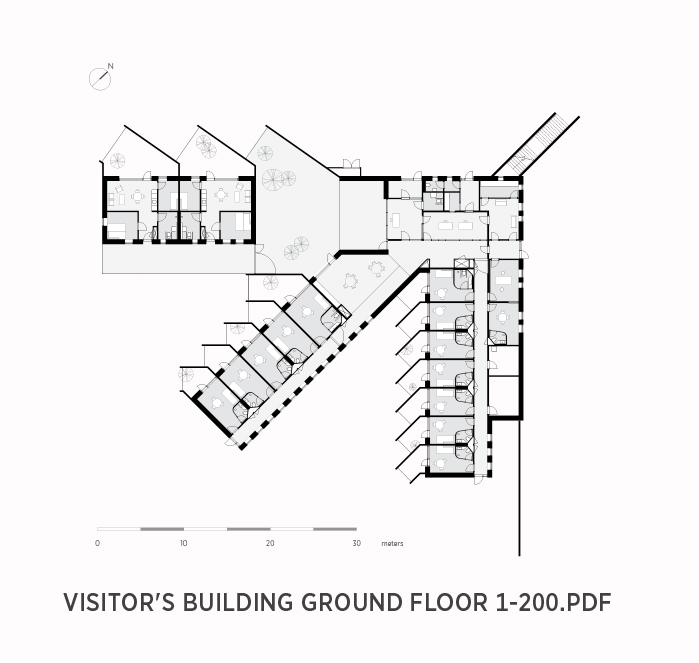
There are 15 visitation rooms:
10 regular visitation rooms
5 family rooms for incarcerated individuals with children. Here, there are toys, a small playground, and other equipment for children.
The prison has 3 visitation apartments, which are furnished to resemble ordinary homes as much as possible. The purpose is to give incarcerated individuals and their children the opportunity to be together in natural surroundings. Not all incarcerated individuals have the opportunity to use the visitation apartments.
Further Reading:
To-prove-there-is-another-way-A-case-study-on-ICT-rehabilitation-in-Storstrom-prison (PDF)
Overview-Press-Material_Storstrøm-Prison-Falster (PDF)
Crafted and translated by Sara Heise

